Like many sectors, the impact of COVID-19 on farming has been severe. Seldom have we seen anything have such a quick and severe impact on market prices. Over the past five weeks, beef prices have fallen by 30-40c/kg for prime stock and as much as 80c/kg for cows.
The collapse comes at a time when farmers would traditionally have been budgeting for prices to increase – so in effect, the financial impact is even greater than the extent of the collapse. As detailed in this week's edition, Adam Woods has calculated the losses for finishers to be running at €250 per head.
Global dairy markets have also been impacted and, as seen last week, processors have been quick to pass this back to dairy farmers with cuts of 1.5-2c/l in the base price. Earlier this week, the industry released a report warning that a collapse in market demand could see €840m less passed back to farmers through milk cheques.
Despite the scale of the losses, agriculture has largely been ignored at national and EU level. In a public health emergency, it is understandable. But as attention turns towards addressing the economic devastation caused by COVID-19, the impact at farm level must be recognised. After all, agriculture is the only developed EU policy area with obligations in respect of farmers’ incomes spelled out in the founding treaty.
Some will argue that the package of measures to be announced by the European Commission this week is a step in this direction. The measures include Private Storage Aid (PSA) for a range of dairy products, beef and sheepmeat, and will assist processors to store products for which demand has collapsed. For the dairy industry, it creates a breathing space for companies to hold produce until markets normalise. Butter, cheese and SMP are all relatively long-life products that can be stored for a period without any loss in value of the product.
Unfortunately, it isn’t the same with steak meat or lamb, where the product has a short shelf life when fresh and loses anything up to half its value when frozen. There may be some value in freezing lower-value cuts in preparation for export to China.
Given the inadequate response from Brussels, attention turns towards the need for financial support at national level
A fund that makes a payment to factories for storing a devalued product does nothing for Irish family farmers who are seeing a decimation in the value of the cattle they sell. Furthermore, putting EU steaks into storage while allowing steak meat from South America to continue to flow into Europe makes no sense.
However, by far the biggest shortcoming in the package of measures announced by the Commission this week is the budget. Allocating a budget of just €80m – to be spread across all member states – merely exposes the extent to which the income challenges on farms are either not understood or are going to be ignored by the Commission. This is in sharp contrast with the US policy where President Trump has announced a $16bn fund to directly support farmers and a further $3bn for a food purchasing programme.
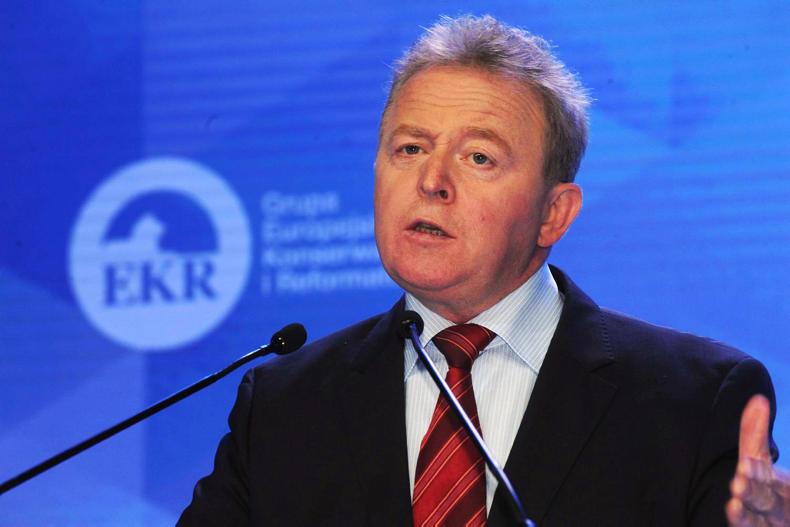
European Commissioner for Agriculture Janusz Wojciechowski.. \ Law and Justice Flickr
Once again, we see evidence of a European Commissioner for Agriculture who is either not in command of his brief or cannot exert the necessary influence within the college of commissioners. A weak commissioner at a time when former Taoiseach John Bruton warns of a potential raid on the CAP budget in response to COVID-19 is a concern.
Given the inadequate response from Brussels to support the beef sector, attention turns firmly towards the need for financial support at national level.
As Government formation talks intensify, responsibility lies with Fine Gael and Fianna Fáil to outline what measures they plan to implement to support the sector. The mechanism used to calculate support under the Beef Exceptional Aid Measure (BEAM) scheme can easily be applied to the current market situation.
In the context of kickstarting the rural economy, it is worth highlighting that supporting suckler and beef farmers has been shown by the IFA to deliver a fourfold return to the rural economy.
Of course, there will be pressure on the national finances and there will be competing interests in need for support to recover from the impact of COVID-19. However, with Ireland able to borrow money at extremely competitive rates and with the EU clearing member states to support farmers up to €100,000 per farm business, if there is a will within the Government to do so, there is certainly a way. The Government has rightly found a mechanism to support a broad-based employment maintenance programme in response to COVID-19 – why should farmers be left outside this framework?
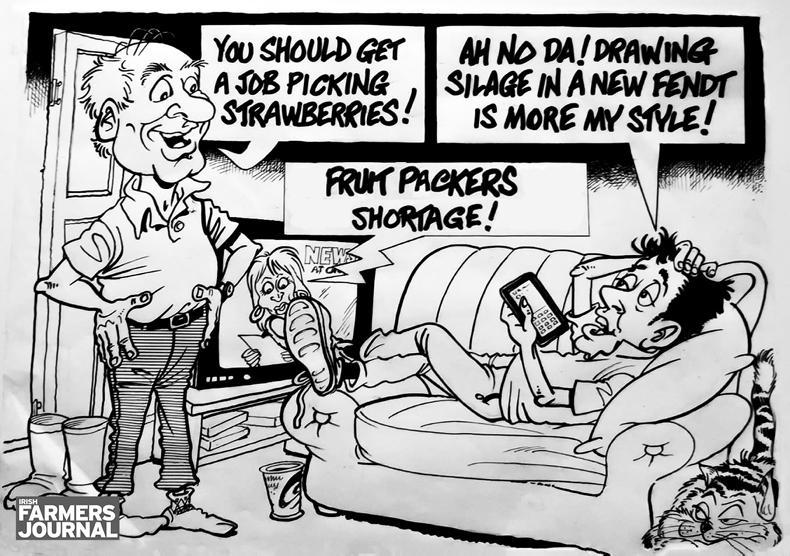
\ Jim Cogan
Land values: fair price for compulsory purchase of land
Suggestions that Government formation plans include a referendum to facilitate an artificial cap on the value of land has angered farmers. The suggestion that land – unlike all other assets – could be acquired at below its market value should not be allowed pass under the radar.
It’s clear from the existing constitution that where the land is required for the public good, it can be compulsorily acquired. Whether it is for necessary infrastructure such as roads or the provision of electricity services, thousands of farmers will have recognised this reality.
The discussion has been along the lines of what’s a fair price rather than a denial that the right to acquire actually exists. There is a well-established arbitration mechanism to determine this “fair price”. It’s hard to see why the owner of a house or pub that is in the way of necessary infrastructure should be treated more favourably than the owner of land.
There are several precedents where local authorities have compulsorily acquired land which they deemed was necessary for housing in a particular area. Again, the discussion was about price rather than principle. We have also seen in recent years the implementation of a special levy on zoned land. The measure has been difficult to implement sensibly but that’s a question of drafting and precision – the principle of acting to prevent the hoarding of zoned land is correct.
Well-located pockets of land in areas where people want to live, especially in major developing cities, will always command high prices.
Land may be an easy target but any analysis of the costs and obstacles to housing development point to the need for action on several fronts. Tampering with the constitution and the rights of private property is not a sensible place to start.
United Nations: moral obligation relating to food
The warning this week by the head of the United Nations food agency that the world is on the brink of a hunger pandemic exposes the extent to which the global food production model is broken. While some parts of the world are on the brink of famine, farmers in other parts are being forced to dump product and/or being encouraged to reduce production.
Clearly there is a moral obligation on parts of the world like Europe that have the soil type, climatic conditions and available technology to optimise their food production capacity – yet policy development is in the opposite direction.
Future policy must balance the climate debate with the fragility of global food production. In the short term, refund measures should be introduced to make any food surplus within the EU available to struggling regions.
COVID-19: no sector safe from coronavirus impact
Boortmalt has confirmed it will reduce its intake of malting barley. It was inevitable that the economic impact of COVID-19 would catch up on the malting sector. Some farmers are now asking what impact Boortmalt’s import strategy has had on the decision. Management and selling decisions will have to be made on farms over the coming weeks to plan for the increased tonnage of feed barley. Growers can’t do that until they know how much their contracts will be cut by – a detail yet to be confirmed by Boortmalt. It is only right that the seed premium for the reduced contracted tonnes be returned to growers, as this barley will likely go for feed.
COVID-19: stay safe on farms
While Government restrictions have helped tackle the spread of COVID-19, there can be no room for complacency. It is important that farmers continue to adhere to good hygiene practices on farm and maintain social distancing when engaging with anyone either arriving on farm or when collecting farm supplies.
Like many sectors, the impact of COVID-19 on farming has been severe. Seldom have we seen anything have such a quick and severe impact on market prices. Over the past five weeks, beef prices have fallen by 30-40c/kg for prime stock and as much as 80c/kg for cows.
The collapse comes at a time when farmers would traditionally have been budgeting for prices to increase – so in effect, the financial impact is even greater than the extent of the collapse. As detailed in this week's edition, Adam Woods has calculated the losses for finishers to be running at €250 per head.
Global dairy markets have also been impacted and, as seen last week, processors have been quick to pass this back to dairy farmers with cuts of 1.5-2c/l in the base price. Earlier this week, the industry released a report warning that a collapse in market demand could see €840m less passed back to farmers through milk cheques.
Despite the scale of the losses, agriculture has largely been ignored at national and EU level. In a public health emergency, it is understandable. But as attention turns towards addressing the economic devastation caused by COVID-19, the impact at farm level must be recognised. After all, agriculture is the only developed EU policy area with obligations in respect of farmers’ incomes spelled out in the founding treaty.
Some will argue that the package of measures to be announced by the European Commission this week is a step in this direction. The measures include Private Storage Aid (PSA) for a range of dairy products, beef and sheepmeat, and will assist processors to store products for which demand has collapsed. For the dairy industry, it creates a breathing space for companies to hold produce until markets normalise. Butter, cheese and SMP are all relatively long-life products that can be stored for a period without any loss in value of the product.
Unfortunately, it isn’t the same with steak meat or lamb, where the product has a short shelf life when fresh and loses anything up to half its value when frozen. There may be some value in freezing lower-value cuts in preparation for export to China.
Given the inadequate response from Brussels, attention turns towards the need for financial support at national level
A fund that makes a payment to factories for storing a devalued product does nothing for Irish family farmers who are seeing a decimation in the value of the cattle they sell. Furthermore, putting EU steaks into storage while allowing steak meat from South America to continue to flow into Europe makes no sense.
However, by far the biggest shortcoming in the package of measures announced by the Commission this week is the budget. Allocating a budget of just €80m – to be spread across all member states – merely exposes the extent to which the income challenges on farms are either not understood or are going to be ignored by the Commission. This is in sharp contrast with the US policy where President Trump has announced a $16bn fund to directly support farmers and a further $3bn for a food purchasing programme.

European Commissioner for Agriculture Janusz Wojciechowski.. \ Law and Justice Flickr
Once again, we see evidence of a European Commissioner for Agriculture who is either not in command of his brief or cannot exert the necessary influence within the college of commissioners. A weak commissioner at a time when former Taoiseach John Bruton warns of a potential raid on the CAP budget in response to COVID-19 is a concern.
Given the inadequate response from Brussels to support the beef sector, attention turns firmly towards the need for financial support at national level.
As Government formation talks intensify, responsibility lies with Fine Gael and Fianna Fáil to outline what measures they plan to implement to support the sector. The mechanism used to calculate support under the Beef Exceptional Aid Measure (BEAM) scheme can easily be applied to the current market situation.
In the context of kickstarting the rural economy, it is worth highlighting that supporting suckler and beef farmers has been shown by the IFA to deliver a fourfold return to the rural economy.
Of course, there will be pressure on the national finances and there will be competing interests in need for support to recover from the impact of COVID-19. However, with Ireland able to borrow money at extremely competitive rates and with the EU clearing member states to support farmers up to €100,000 per farm business, if there is a will within the Government to do so, there is certainly a way. The Government has rightly found a mechanism to support a broad-based employment maintenance programme in response to COVID-19 – why should farmers be left outside this framework?

\ Jim Cogan
Land values: fair price for compulsory purchase of land
Suggestions that Government formation plans include a referendum to facilitate an artificial cap on the value of land has angered farmers. The suggestion that land – unlike all other assets – could be acquired at below its market value should not be allowed pass under the radar.
It’s clear from the existing constitution that where the land is required for the public good, it can be compulsorily acquired. Whether it is for necessary infrastructure such as roads or the provision of electricity services, thousands of farmers will have recognised this reality.
The discussion has been along the lines of what’s a fair price rather than a denial that the right to acquire actually exists. There is a well-established arbitration mechanism to determine this “fair price”. It’s hard to see why the owner of a house or pub that is in the way of necessary infrastructure should be treated more favourably than the owner of land.
There are several precedents where local authorities have compulsorily acquired land which they deemed was necessary for housing in a particular area. Again, the discussion was about price rather than principle. We have also seen in recent years the implementation of a special levy on zoned land. The measure has been difficult to implement sensibly but that’s a question of drafting and precision – the principle of acting to prevent the hoarding of zoned land is correct.
Well-located pockets of land in areas where people want to live, especially in major developing cities, will always command high prices.
Land may be an easy target but any analysis of the costs and obstacles to housing development point to the need for action on several fronts. Tampering with the constitution and the rights of private property is not a sensible place to start.
United Nations: moral obligation relating to food
The warning this week by the head of the United Nations food agency that the world is on the brink of a hunger pandemic exposes the extent to which the global food production model is broken. While some parts of the world are on the brink of famine, farmers in other parts are being forced to dump product and/or being encouraged to reduce production.
Clearly there is a moral obligation on parts of the world like Europe that have the soil type, climatic conditions and available technology to optimise their food production capacity – yet policy development is in the opposite direction.
Future policy must balance the climate debate with the fragility of global food production. In the short term, refund measures should be introduced to make any food surplus within the EU available to struggling regions.
COVID-19: no sector safe from coronavirus impact
Boortmalt has confirmed it will reduce its intake of malting barley. It was inevitable that the economic impact of COVID-19 would catch up on the malting sector. Some farmers are now asking what impact Boortmalt’s import strategy has had on the decision. Management and selling decisions will have to be made on farms over the coming weeks to plan for the increased tonnage of feed barley. Growers can’t do that until they know how much their contracts will be cut by – a detail yet to be confirmed by Boortmalt. It is only right that the seed premium for the reduced contracted tonnes be returned to growers, as this barley will likely go for feed.
COVID-19: stay safe on farms
While Government restrictions have helped tackle the spread of COVID-19, there can be no room for complacency. It is important that farmers continue to adhere to good hygiene practices on farm and maintain social distancing when engaging with anyone either arriving on farm or when collecting farm supplies.






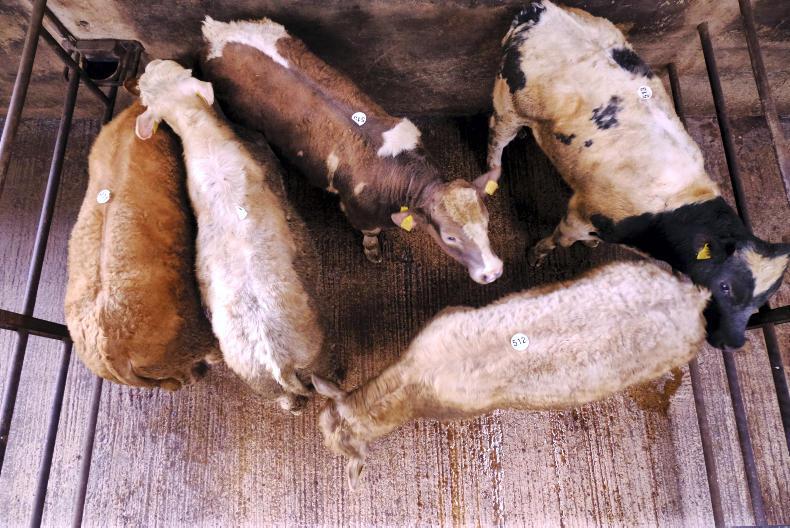
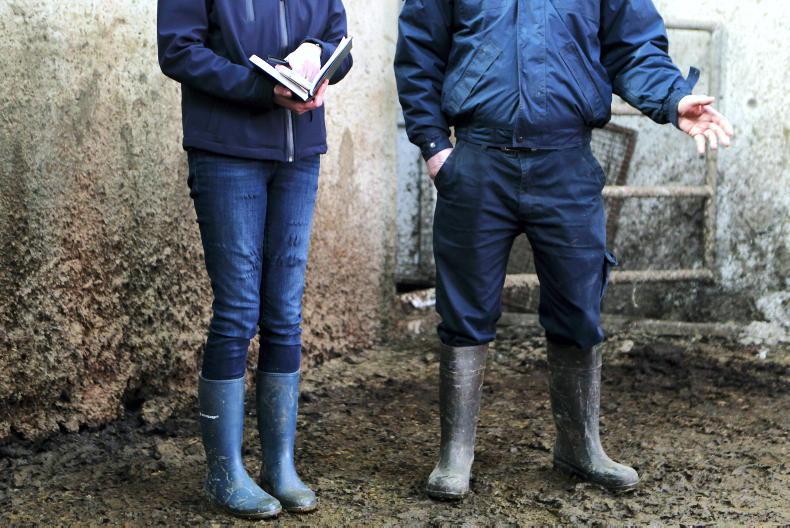

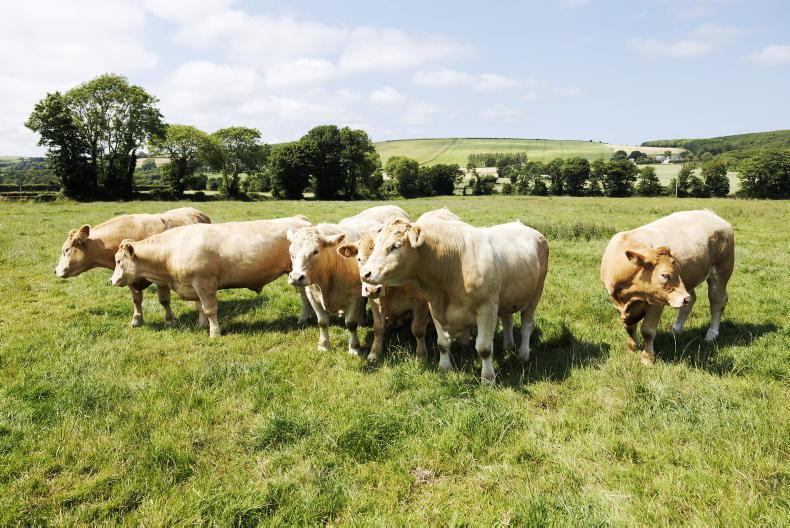
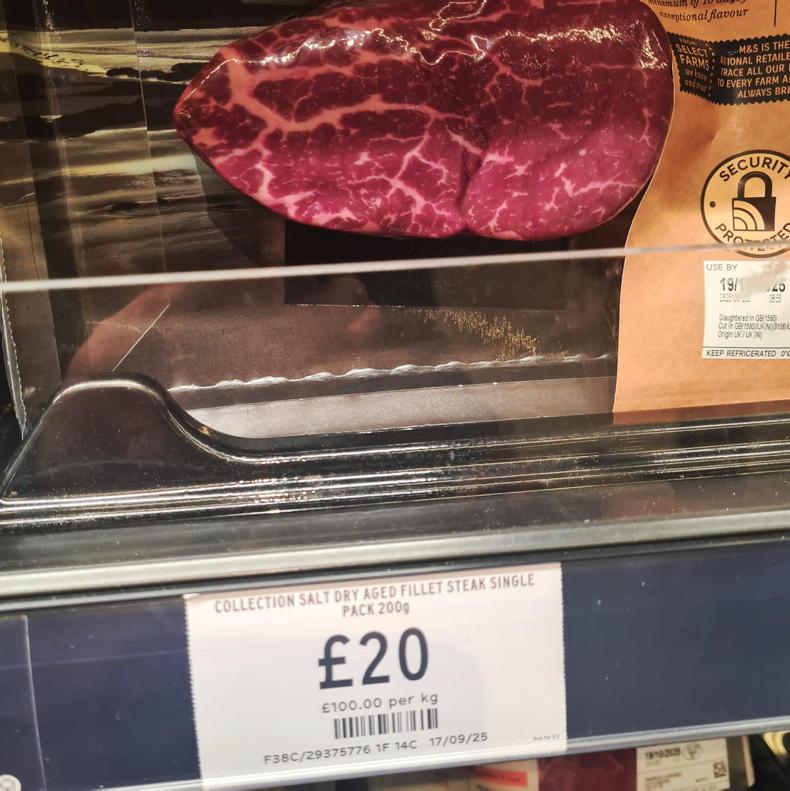
SHARING OPTIONS